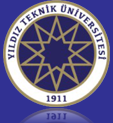| Dersin Amacı | • Sosyal ve ekonomik dinamikleri planlama perspektifiyle analiz etmek ve eleştirel bir çerçeve sağlamak,
• Kentsel İnovasyonun farklı boyutlarını ve Planlama arasındaki ilişkiyi keşfetmek.
• Bilgi Çağının çok boyutlu yapısını anlamak (Bilgi Çağında Bilgi Toplumu Düzeni ve sosyal teori)
|
|---|
| Dersin İçeriği | • Bilgi üretimi ve planlama ilişkisi,
• Bilgi çağınının ağ toplumu yapısı
• Kentsel veriye dayalı bilgi üretimi ve planlamaya etkileri
• Kentsel inovasyonun çok boyutlu yapısı (Sosyal / politik inovasyon, Çevresel İnovasyon, Teknolojik İnovasyon, Ekonomik İnovasyon)
• Bilgi çağında kentsel mekanın değişen anlamı ve kullanımı.
|
|---|
| Ders Kitabı / Malzemesi / Önerilen Kaynaklar | - Bell, D. (1976). The Coming of Post-Industrial Society: A Venture in Social Forecasting. Basic Books.
- Campbell, T., (2009), ‘Learning Cities: Knowledge, Capacity and Competitiveness’, Habitat International, Vol.33, No. 2, April 2009, pp. 195-201.
- Castells, M. (1999). The Information Age, Volumes 1-3: Economy, Society and Culture. Wiley-Blackwell.
- Cels, S, Jorrit de Jong, et al., 2012, Agents of Change: Strategy and Tactics for Social Innovation, Brookings Institution Press.
- Creutzberg T. 2006. ‘Structuring Innovation: A comparative look at the collaborations and related policies supporting Ontario’s innovation capacity’. Queen’s Printer. Ontario
- Feinstein, Susan S., Gordon, Ian and Harloe, Michael (eds .) ( 1992) Divided Cities, Oxford: Blackwell
- Florida, R. 2002. “The economic geography of talent,” Annals of the Association of American Geographers 94(2): 743-55.
- Florida R. 1995. ‘Toward the Learning Region’, in Futures, Vol. 27., No. 5., pp. 527-536.
- Florida, R. (2005) Cities and the Creative Class, New York, Fainstein, Susan S., Gordon, Ian and Harloe, Michael (eds .) ( 1992) Divided Cities, Oxford: Blackwell
- Florida ,, Bridging urban digital divide? Urban polarization and information and communication technologies. Background paper. Cities in a Globalizing World: Global Report on Human Settlements 2001. United Nations Centre for Human Settlements (Habitat), Nairobi, Kenya, New York, USA
- Hall, P., 1995, "Towards a general urban theory" , in John Brotchie et al. (eds), Cities in Competition: Productive and Sustainable Cities for the 21 st Century, Sydney: Longman Australia, pp. 3-32
- Landry, C., & Comedia (Firm). (2000). The creative city: A toolkit for urban innovators. London: Earthscan Publications.
- Lash S.; Urry J. (1993) Economies of signs and space Sage Publications, London. Lundvall BA and P. Maskell. 2000. ‘Nation States and Economic Development: From National Systems of Production to National Systems of Knowledge Creation and Learning. In Clark, Feldman and Gertler (Eds.) The Oxford Handbook of Economic Geography. Oxford University Press, Chap. 18.
- Lundvall BA. And S. Borras 2006. “Science, Technology and Innovation Policy”. In Fagerberg J. et al. (eds.) The Oxford Handbook of Innovation New York: Oxford University Press.
- Mulgan, G, 2009, The Art of Public Strategy: Mobilizing Power and Knowledge for the Common Good. Oxford University Press.
- Ontario’s Regional Innovation Networks. 2007. “The Critical Role of Regional Innovation Networks (RINs)
- Sassen S., 1998, The Mobility of Labor and Capital: A Study in International Investment and Labor Flow (Cambridge: Cambridge University Press,
- Saxenian A. 2006., The new argonauts: regional advantage in a global economy. Cambridge, MA: Harvard University Press, 2006. 424pp.
- Scott, A. J. (2008) Social Economy of the Metropolis: Cognitive-Cultural Capitalism and the Global Resurgence of Cities, Oxford University Press Inc., New York.
- Webster, F.,2006, Theories of the Information Age. 3. Basım. S. 30. Routledge. EU 2020 Strategy
|
|---|



